As the world marks World Environment Day 2025 with the urgent call to ‘Beat Plastic Pollution,’ the message is clear: environmental sustainability can no longer be sidelined—it must be central to how we live, work, and grow.
In an era where the health of our planet is intrinsically linked to economic resilience and societal well-being, businesses are increasingly recognizing nature not as a passive resource, but as an indispensable and equal stakeholder in their growth journeys. This paradigm shift is driven by intensifying climate risks, accelerating biodiversity loss, and the tangible, measurable, and immediate costs of environmental degradation that impact supply chain stability, operational continuity, resource availability, and brand trust. As Anurag Mangla, Climate Change and Sustainability Services Leader - APAC, EY Global Delivery Services, articulates, "Nature is not a passive resource - it is the critical enabler of our long-term sustenance as a community". This sentiment is echoed by Yuvraj Bhardwaj, Co-Founder and CEO at Plannex Recycling, who states that "nature must be viewed not as a passive background actor but as an active stakeholder—as vital as our investors, employees, and customers".
The Imperative of Nature as a Stakeholder
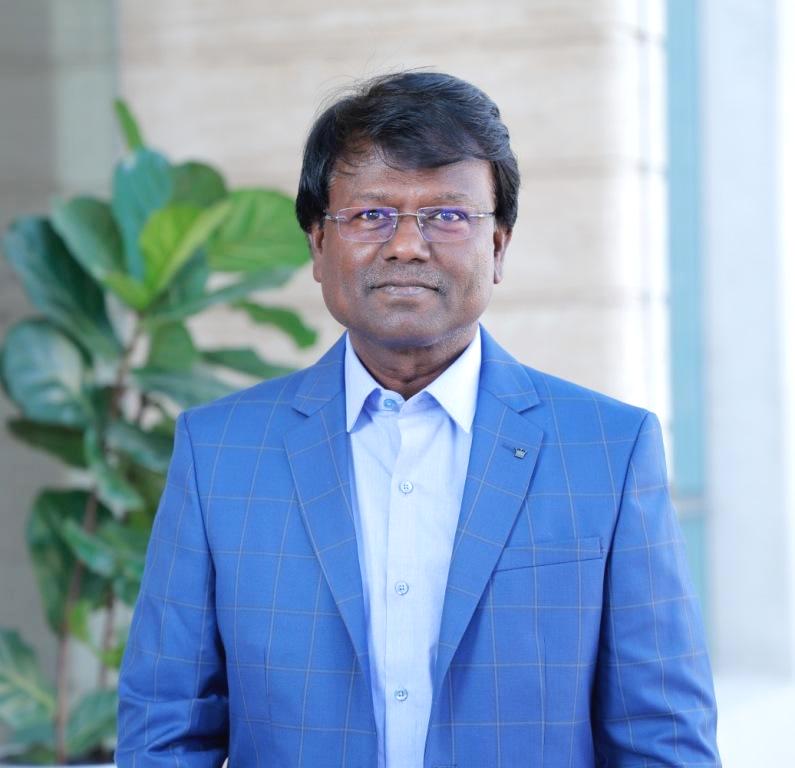 The understanding that integrating nature into business strategy is no longer merely philosophical but strategic is gaining widespread traction. Businesses that embed natural capital into their strategies are better positioned for resilience, regulatory compliance, and investor confidence, ultimately creating long-term value and maintaining their license to operate. The World Economic Forum's 2025 Global Risks Report underscores this urgency, identifying biodiversity loss and ecosystem collapse among the top global risks by impact.
The understanding that integrating nature into business strategy is no longer merely philosophical but strategic is gaining widespread traction. Businesses that embed natural capital into their strategies are better positioned for resilience, regulatory compliance, and investor confidence, ultimately creating long-term value and maintaining their license to operate. The World Economic Forum's 2025 Global Risks Report underscores this urgency, identifying biodiversity loss and ecosystem collapse among the top global risks by impact.
Companies like EY GDS are actively helping organizations integrate nature-related risks and dependencies into their enterprise risk management and reporting frameworks, supporting alignment with initiatives like the Taskforce on Nature-related Financial Disclosures to assess biodiversity impacts and dependencies across value chains. As Brathaban Karuppaiah, Country General Manager, SBM Offshore India, emphasizes, "Our growth is grounded in environmental stewardship, where economic development is pursued in harmony with ecological well-being". He further highlights that "The health of our planet is directly tied to the continuity and stability of industries like offshore energy".
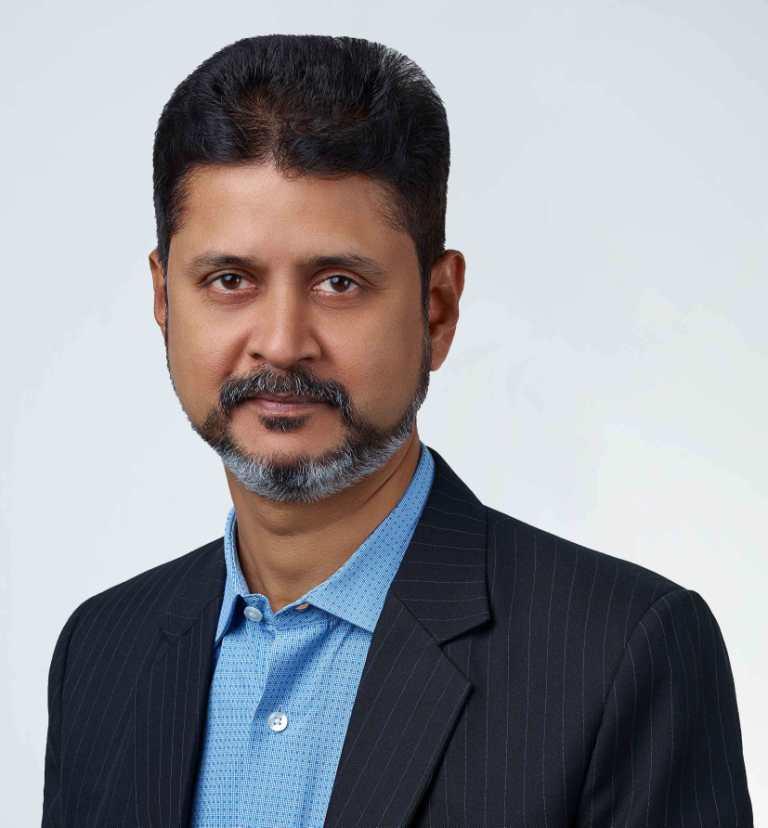 Similarly, Sunil Balakrishnan, Chief Values Officer at UST, stresses that "long-term business success is inseparable from environmental responsibility," and that "caring for the planet is not only a moral imperative but also a business necessity".
Similarly, Sunil Balakrishnan, Chief Values Officer at UST, stresses that "long-term business success is inseparable from environmental responsibility," and that "caring for the planet is not only a moral imperative but also a business necessity".
 HGS, through Shilpa Sinha Harsh, Executive Vice President, Global Corporate Communications, CSR, DEI, and ESG, shares a compelling example from Rajasthan where water conservation efforts directly led to improved crop cycles, reduced migration, and enhanced livelihoods, demonstrating that "When nature thrives, communities thrive, and businesses operating in those communities benefit too". This recognition fosters a shift from extraction to regeneration, a mindset crucial for future-ready and responsible growth.
HGS, through Shilpa Sinha Harsh, Executive Vice President, Global Corporate Communications, CSR, DEI, and ESG, shares a compelling example from Rajasthan where water conservation efforts directly led to improved crop cycles, reduced migration, and enhanced livelihoods, demonstrating that "When nature thrives, communities thrive, and businesses operating in those communities benefit too". This recognition fosters a shift from extraction to regeneration, a mindset crucial for future-ready and responsible growth.
Engaging Employees in the Green Journey
For any organization to be truly sustainable, it requires a collective effort, a "village" mentality where sustainability practices are embraced through both top-down and bottom-up approaches. While boardroom discussions set strategic direction, it is the individual employee's commitment that truly drives sustainability. As Anurag Mangla points out, "any organization is as good as its employees!".
Companies are implementing diverse and innovative strategies to meaningfully engage their employees. EY GDS, for instance, designs purpose-driven and measurable employee engagement programs to embed sustainability into their organizational DNA. These include ESG literacy training, green innovation labs, and sustainability-linked performance incentives, ensuring that professionals are trained in ESG frameworks and contribute to client impact through sustainability-focused engagements. The key, Mangla notes, is when "employees see how their actions directly contribute to broader ESG goals".
 Plannex Recycling, according to Yuvraj Bhardwaj, focuses on creating meaningful, measurable, and rewarding ways for employees to contribute. Their threefold strategy includes integrating sustainability into Key Responsibility Areas – such as green procurement targets for the procurement team and emission reduction ratings for plant managers. They also utilize gamified participation through internal campaigns like "The Green League" where departments compete on waste reduction, energy conservation, and creative reuse, with winners receiving recognition and performance-linked bonuses.
Plannex Recycling, according to Yuvraj Bhardwaj, focuses on creating meaningful, measurable, and rewarding ways for employees to contribute. Their threefold strategy includes integrating sustainability into Key Responsibility Areas – such as green procurement targets for the procurement team and emission reduction ratings for plant managers. They also utilize gamified participation through internal campaigns like "The Green League" where departments compete on waste reduction, energy conservation, and creative reuse, with winners receiving recognition and performance-linked bonuses.
Furthermore, Plannex promotes a sustainable workplace design and culture, implementing a zero-single-use-plastic policy, encouraging sustainable alternatives, and providing facilities like compost bins and bike parking. "Green Fridays" – monthly sessions focused on learning, volunteering, or innovation challenges in sustainability – further institutionalize this commitment.
Critically, Plannex tracks engagement not just through participation rates but also through behavioral metrics like commuting patterns and energy use per desk.
At SBM Offshore, employee engagement is a key enabler of their "True. Blue. Transition." strategy. They foster a culture of responsibility and innovation through programs like emissionZERO® and Fast4Ward®, empowering teams to take ownership of sustainability goals. Awareness-building through inclusive goal setting, transparent communication, and training ensures sustainability is woven into the organizational fabric.
UST places employee engagement at the heart of its sustainability journey, fostering a culture of purpose-driven action through frameworks like "Colors," a non-hierarchical engagement model. They empower employees through sustainability training, climate workshops, and hackathons to champion eco-friendly solutions. Platforms like SIGHT, the EcoChampion Ideathon, and Haritham promote climate literacy, green practices, and sustainable consumption, and employees collaborate with clients in initiatives like the Sustainability Innovation Challenge to co-create impactful solutions.
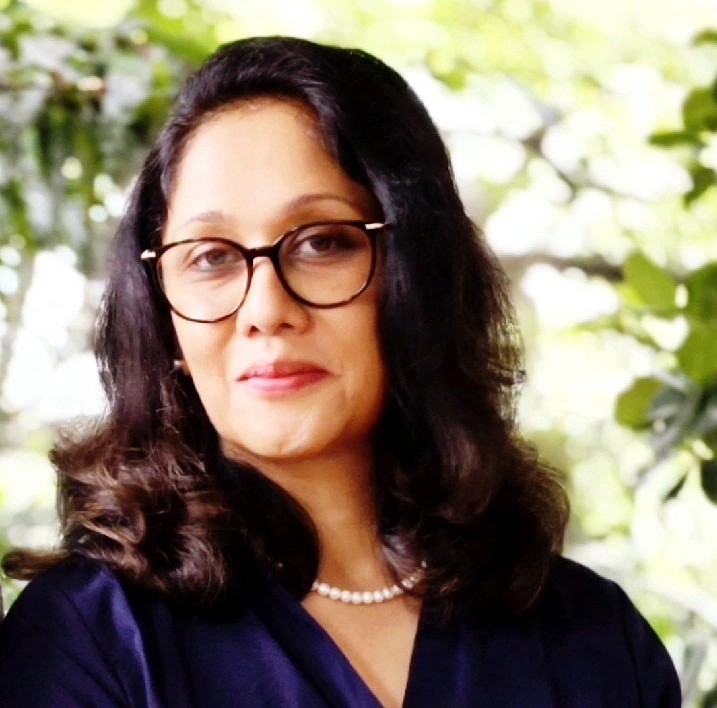 Shilpa Deodhar, Head of Corporate Social Responsibility, Bosch Global Software Technologies, highlights the role of volunteers in amplifying environmental impact through awareness campaigns, clean-up drives, and afforestation efforts. Bosch also champions everyday sustainability among employees, recognizing that "Small, consistent actions, like cycling or using public transport, avoiding single-use plastics, reducing waste, and adopting mindful consumption—can spark broader cultural shifts".
Shilpa Deodhar, Head of Corporate Social Responsibility, Bosch Global Software Technologies, highlights the role of volunteers in amplifying environmental impact through awareness campaigns, clean-up drives, and afforestation efforts. Bosch also champions everyday sustainability among employees, recognizing that "Small, consistent actions, like cycling or using public transport, avoiding single-use plastics, reducing waste, and adopting mindful consumption—can spark broader cultural shifts".
 Reinforcing the personal aspect of sustainability, Ankit Mathur, Co-founder & CEO, Greenway Grameen, aptly states, "Sustainability isn’t something we can outsource, it starts with the individual. It’s not just about switching to eco-friendly products; it’s about shifting how we think, buy, and live. Ask yourself: Do I really need this, or can I make what I have last longer? It’s these small, mindful choices that shape a culture of sustainability. Real impact comes from everyday action, whether it’s choosing energy-efficient solutions, reducing waste, or embracing renewable alternatives in our homes. Change doesn’t start big, it starts with better decisions, made consistently."
Reinforcing the personal aspect of sustainability, Ankit Mathur, Co-founder & CEO, Greenway Grameen, aptly states, "Sustainability isn’t something we can outsource, it starts with the individual. It’s not just about switching to eco-friendly products; it’s about shifting how we think, buy, and live. Ask yourself: Do I really need this, or can I make what I have last longer? It’s these small, mindful choices that shape a culture of sustainability. Real impact comes from everyday action, whether it’s choosing energy-efficient solutions, reducing waste, or embracing renewable alternatives in our homes. Change doesn’t start big, it starts with better decisions, made consistently."
Navigating Challenges and Embracing Opportunities
The journey towards sustainability is not without its challenges, especially in a rapidly evolving global landscape. However, leading organizations are increasingly viewing these challenges as opportunities for innovation and growth.
Anurag Mangla of EY GDS emphasizes that regulatory developments, such as the EU's Omnibus Directive and the expanding Corporate Sustainability Reporting Directive, are not merely compliance requirements but "strategic levers for transformation". Similarly, the fast-paced evolution of the sustainability ecosystem in the United States, with emerging federal and state-level climate disclosure rules, is reshaping corporate priorities. EY GDS embraces these changes as opportunities to deepen their technical capabilities and support businesses in navigating complexity with confidence. Internally, they mirror this commitment by applying the same rigor to their own sustainability practices, ensuring transparency, accountability, and continuous improvement. A promising area of growth lies in ESG data quality, integration, and the usage of AI in ESG data management. By implementing robust governance frameworks, controls testing, and assurance processes, EY GDS enhances data reliability and builds a foundation for more strategic, data-driven decision-making.
Plannex Recycling, operating within India's waste ecosystem, faces multifaceted challenges, including supply chain fragmentation, lack of data transparency, and policy-execution gaps. To address supply chain fragmentation, they have implemented smart waste collection hubs that integrate informal waste collectors with formalized, tech-driven logistics, using IoT tracking and route optimization for cleaner, more consistent input flows.
To combat data transparency issues, Plannex developed proprietary digital dashboards to track emissions, energy usage, and waste flows across their facilities, enabling data-driven decisions.
Regarding policy-execution gaps, they partner directly with Urban Local Bodies and state pollution control boards to co-develop localized circular economy models, offering training for municipal workers and incentivizing community-based waste segregation. Plannex also addresses the cost versus impact trade-off by treating sustainability CAPEX as a strategic moat, noting that investments in green infrastructure reduce operational costs and enhance ESG scores, which are critical for long-term investor relations and supply chain credibility. Yashodhan Ramteke, Head-Carbon Business Unit, MMCM, stresses the urgency of these efforts: "As we face the challenges posed by climate change, it is critical to advance circular economy models and reinforce carbon saving systems. At MMCM, we believe waste can be converted to value from an environmental lens, through recycling, reusing and carbon reductions.”
SBM Offshore acknowledges challenges around managing emissions from fossil fuel-linked operations and staying ahead of evolving ESG standards. Their approach involves proactively investing in emerging technologies like carbon capture modules, in collaboration with Mitsubishi Heavy Industries, and advancing floating offshore wind capabilities. Double Materiality Assessments guide their decisions, aligning business priorities with stakeholder and environmental expectations. Their focus on Scope 1 and 2 emissions is evident in their commitment to investing in certified projects to balance emissions from office energy use. For instance, their India office converts 100% of food waste into biogas and aims to source 100% green energy by 2030 to achieve a net-zero goal within their operational scope.
UST identifies the complexity of integrating sustainable practices across global supply chains and diverse client ecosystems, alongside navigating varying regulations, reporting standards, and stakeholder expectations, as major challenges. Their solution involves investing in ESG training, Green IT awareness, and employee engagement initiatives. They leverage data and AI to streamline ESG reporting, decarbonize operations, and embed sustainability into client transformations, ensuring measurable progress toward net-zero and the SDGs. Strategic partnerships also enable them to tackle challenges requiring specialized expertise.
 Anuj Khurana, Co-Founder and CEO, Anaptyss, highlights the BFSI industry's need for sustainable operations, emphasizing a critical rethink of everyday operations to reduce environmental footprint, including concerns around plastic-heavy and paper-dependent legacy systems or energy-intensive cloud and automation deployment. He also notes the rise of green job profiles within the sector, with an expected addition of close to 0.7 million green jobs over the next five years, fast-tracking responsible innovation.
Anuj Khurana, Co-Founder and CEO, Anaptyss, highlights the BFSI industry's need for sustainable operations, emphasizing a critical rethink of everyday operations to reduce environmental footprint, including concerns around plastic-heavy and paper-dependent legacy systems or energy-intensive cloud and automation deployment. He also notes the rise of green job profiles within the sector, with an expected addition of close to 0.7 million green jobs over the next five years, fast-tracking responsible innovation.
Prof. Swapan Ray, Professor of Practice – Sustainability & Circular Economy, K J Somaiya Institute of Management, provides a sobering perspective on the scale of challenges within responsible consumption and production: "As we celebrate World Environment Day, an evaluation of the Sustainable Development Goal, SDG-12 on ‘Responsible Consumption and Production’ becomes imperative. Unfortunately, like most SDGs, the report card presents a dismal picture. Globally, over one billion tonnes of food is wasted—60% of it at the household level. At the same time, 30% of the global population experiences moderate to severe hunger. While there are technological solutions to improve productivity, storage, and distribution, socioeconomic and geopolitical factors contribute to this paradox of abundance and deprivation.
 The story is equally troubling in the world of fast fashion. Of an estimated 100 billion garments produced each year, 90% are discarded within 12 months, and 20% are never even worn. In consumer electronics, frequent upgrades push people to discard still-functional devices, contributing to a booming e-waste crisis. We are aggressively extracting natural resources to satisfy insatiable demand—yet generating waste far beyond our ecological capacity. Unless we rethink the way we consume and produce, we risk overwhelming our planet's ability to recover."
The story is equally troubling in the world of fast fashion. Of an estimated 100 billion garments produced each year, 90% are discarded within 12 months, and 20% are never even worn. In consumer electronics, frequent upgrades push people to discard still-functional devices, contributing to a booming e-waste crisis. We are aggressively extracting natural resources to satisfy insatiable demand—yet generating waste far beyond our ecological capacity. Unless we rethink the way we consume and produce, we risk overwhelming our planet's ability to recover."
The Power of Cross-Sector Collaborations
Achieving systemic change and scaling environmental impact necessitates robust cross-sector collaborations and partnerships. As Anurag Mangla states, "Cross-sector collaboration is essential to achieving systemic change". Businesses are actively engaging with governments, NGOs, industry peers, and communities to amplify their ESG impact. EY GDS helps businesses identify and engage in such strategic collaborations, validating outcomes to ensure transparency and credibility.
They also participate in global sustainability forums and standard-setting bodies, contributing to the development of frameworks that benefit the entire ecosystem. These collaborations accelerate innovation, scale solutions, and build trust across stakeholder groups.
Yuvraj Bhardwaj underscores that "No sustainability goal is achievable in isolation". Plannex Recycling views waste management as a systems problem requiring cooperation from municipalities, private players, civic society, and consumers. Their impactful collaborative projects include working with state governments on Extended Producer Responsibility implementation models and co-developing waste-to-value facilities with urban local bodies. They collaborate with NGOs on behavioral change campaigns in schools and low-income housing areas to build community ownership around segregation. Industry co-innovation with FMCG and packaging companies focuses on co-developing mono-material packaging and reverse logistics loops, and Plannex is part of a consortium working on national standards for polymer grades in post-consumer plastic.
SBM Offshore actively partners with NGOs and industry peers to co-create sustainable ocean infrastructure, accelerate innovation, and share risk responsibly. These alliances help them scale solutions and drive meaningful change beyond organizational boundaries.
UST believes cross-sector collaborations are essential for scaling environmental impact, harnessing diverse expertise, resources, and influence through partnerships with governments, NGOs, academia, startups, and industry peers. Their "Thinking Ahead" report highlights how consulting with policymakers and partnering with peers accelerates regulation-ready innovations, while over 300 startup alliances drive agile, tech-led decarbonization and resilience projects. Their CSR reports showcase partnerships with over 50 NGOs, jointly delivering more than 170 projects.
Shilpa Deodhar of Bosch Global Software Technologies emphasizes that transformative potential is unlocked when businesses collaborate with governments, policymakers, scientists, communities, and technology partners. Their CSR initiatives, from community-driven lake rejuvenation to applying scientific conservation techniques, underscore the value of bringing diverse expertise together.
HGS's water project in Rajasthan exemplifies the power of convergence, where costs for rainwater harvesting systems were jointly borne by HGS, local government bodies, and community members, fostering greater ownership and sustained usage. This shared investment ensures that communities have real skin in the game, leading to greater ownership, sustained usage, and ongoing maintenance of the assets created.
Aligning with UN Sustainable Development Goals
The UN SDGs provide a universal framework for addressing global challenges, and businesses are increasingly aligning their sustainability strategies with these goals.
EY's sustainability strategy is directly aligned with the SDGs, and they help businesses achieve this through materiality assessments and SDG mapping. They support SDG 13 - Climate Action - through climate risk assurance and SDG 12 - Responsible Consumption - via supply chain audits. Their services help identify priority SDGs, integrate them into strategy, and report progress transparently. Internally, EY GDS contributes to SDGs through initiatives in clean energy, waste and water management, inclusive hiring, and responsible operations. They also emphasize SDG 4 - Quality Education, SDG 5 - Gender Equality, and the empowerment of all individuals, especially those from marginalized communities.
SBM Offshore's strategy aligns closely with SDG 7 - Affordable and Clean Energy, SDG 9 - Industry, Innovation, and Infrastructure, SDG 13 - Climate Action, and SDG 14 - Life Below Water. Their India office extends this alignment through community-centric initiatives supporting SDG 3 - Good Health and Well-being with wellness programs, SDG 4 - Quality Education - by supporting underprivileged children's schools, and SDG 13 through tree planting efforts.
UST demonstrates its alignment with various SDGs: SDG 8 - Decent Work & Growth - through green-IT upskilling and safe workplaces; SDG 9 via AI energy-management and smart-facility solutions; SDG 13 with net-zero targets and renewable energy projects; SDG 15 - Life on Land - through forest restoration and biodiversity partnerships; SDG 16 - Peace, Justice & Strong Institutions - by embedding ESG KPIs into executive dashboards; and SDG 17 - Partnerships - through collaborations for shared impact.
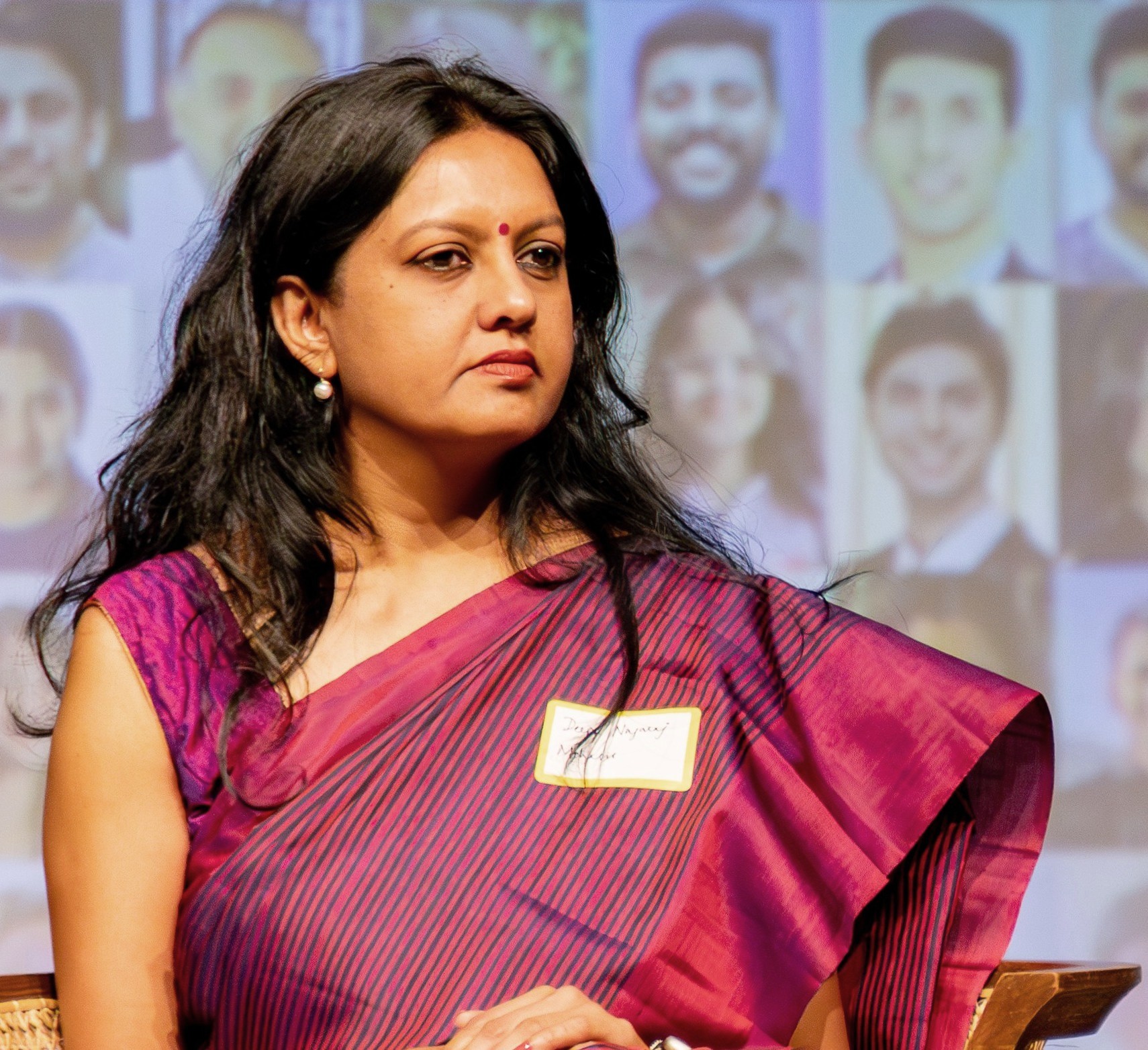 Deepa Nagraj, Head of ESG and CSR, Mphasis highlights their "Tech For Good" framework, which leverages AI, cloud, and quantum technologies to deliver scalable and sustainable solutions that align with UN Sustainable Development Goals. Their internal practices also contribute, with nearly 50% of energy needs met through renewable sources and 100% wastewater recycling, alongside efforts to reduce greenhouse gas emissions. They also partner with United Way of Bengaluru on initiatives that support SDGs, such as lake rejuvenation, rainwater harvesting, afforestation, and mangrove restoration, benefiting thousands of lives through climate-resilient community development.
Deepa Nagraj, Head of ESG and CSR, Mphasis highlights their "Tech For Good" framework, which leverages AI, cloud, and quantum technologies to deliver scalable and sustainable solutions that align with UN Sustainable Development Goals. Their internal practices also contribute, with nearly 50% of energy needs met through renewable sources and 100% wastewater recycling, alongside efforts to reduce greenhouse gas emissions. They also partner with United Way of Bengaluru on initiatives that support SDGs, such as lake rejuvenation, rainwater harvesting, afforestation, and mangrove restoration, benefiting thousands of lives through climate-resilient community development.
 Sumit Barat, Chief Sustainability Officer at BluPine Energy, articulates the integrated approach to climate action and community development: “The world’s challenges aren’t confined to sovereign borders, and India’s decarbonization journey shall be a major tailwind in the global fight against climate change. In FY2024, we avoided over 670,000 tonnes of CO2e emissions and generated more than 740,000 MWh of renewable energy—advancing our Net Zero 2040 and Water Neutrality 2027 goals…Sustainability for us isn’t an initiative—it’s the lens through which we see growth, resilience, and the kind of legacy we want to leave behind."
Sumit Barat, Chief Sustainability Officer at BluPine Energy, articulates the integrated approach to climate action and community development: “The world’s challenges aren’t confined to sovereign borders, and India’s decarbonization journey shall be a major tailwind in the global fight against climate change. In FY2024, we avoided over 670,000 tonnes of CO2e emissions and generated more than 740,000 MWh of renewable energy—advancing our Net Zero 2040 and Water Neutrality 2027 goals…Sustainability for us isn’t an initiative—it’s the lens through which we see growth, resilience, and the kind of legacy we want to leave behind."
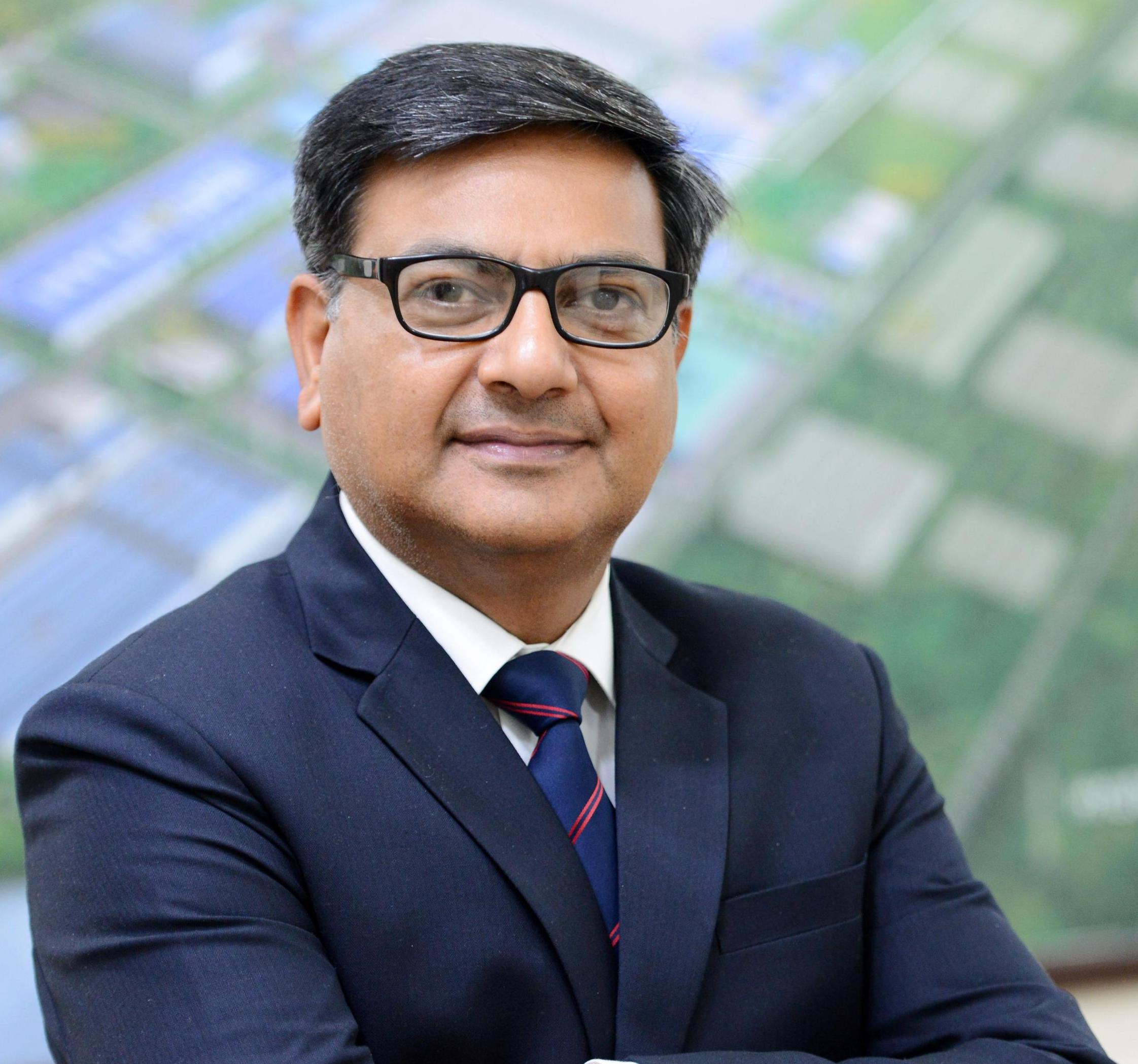 Adding to the collective efforts, Hyundai Motor India Foundation shares their grassroots impact: Puneet Anand, AVP & Vertical Head - Corporate Affairs, Corporate Communication & Social, Hyundai Motor India Limited, shares, "Hyundai Motor India Foundation is dedicated to driving impact where it matters most—at the grassroots across Bharat. In alignment with our aim to achieve carbon neutrality by 2045, we continue to strengthen our initiatives that support clean mobility, afforestation, ocean conservation, and innovative waste management practices. Through our ongoing urban sustainability efforts in Gurugram, we are actively diverting waste from landfills and significantly reducing carbon emissions. EcoGram by Hyundai currently recycles over 11,15,370 kg of waste and reduces over 1,44,000 kg of CO2 emissions."
Adding to the collective efforts, Hyundai Motor India Foundation shares their grassroots impact: Puneet Anand, AVP & Vertical Head - Corporate Affairs, Corporate Communication & Social, Hyundai Motor India Limited, shares, "Hyundai Motor India Foundation is dedicated to driving impact where it matters most—at the grassroots across Bharat. In alignment with our aim to achieve carbon neutrality by 2045, we continue to strengthen our initiatives that support clean mobility, afforestation, ocean conservation, and innovative waste management practices. Through our ongoing urban sustainability efforts in Gurugram, we are actively diverting waste from landfills and significantly reducing carbon emissions. EcoGram by Hyundai currently recycles over 11,15,370 kg of waste and reduces over 1,44,000 kg of CO2 emissions."
Reducing Environmental Impact Across the Supply Chain
Recognizing that a significant portion of a company's environmental footprint lies within its supply chain, businesses are implementing comprehensive strategies to reduce this impact.
EY GDS helps businesses decarbonize their supply chains through ESG risk assessments, supplier engagement programs, and Scope 3 emissions assurance. Their services include sustainable procurement advisory, circular economy strategies, and ESG performance benchmarking. Internally, EY GDS applies similar principles, working with vendors who meet their environmental standards and embedding sustainability into procurement decisions. They also support businesses in setting science-based targets and tracking supplier compliance to holistically address environmental impact across the value chain. Notably, a high 61% of their top suppliers by spend have a validated SBTi target. EY GDS has also made significant strides in transitioning to renewable energy sources and improving energy efficiency, contributing to affordable and clean energy goals, and actively supports sustainable production patterns through responsible consumption practices and waste reduction efforts.
Plannex Recycling, with a supply chain spanning over 15 cities and thousands of partners, has taken structured steps to reduce its footprint. They are gradually transitioning their logistics fleet to electric and CNG vehicles. Their green procurement policy evaluates all supplier contracts on ESG performance, including compliance with hazardous waste rules, use of recyclable packaging, and transparency in labor practices, with non-compliant vendors being disqualified over time. Energy optimization at their plants involves upgrading with solar rooftops, rainwater harvesting systems, and VFD-controlled machinery to reduce energy and water intensity. They aim to reduce per-ton energy consumption by 18% across their plastic recycling lines in FY 2024–25.
Plannex has also launched a blockchain-based traceability pilot to track waste from source to recycling, allowing clients and regulators to verify scientific handling of post-consumer waste. Furthermore, they run green onboarding programs for new suppliers to educate them on sustainable practices, safety norms, and compliance protocols.
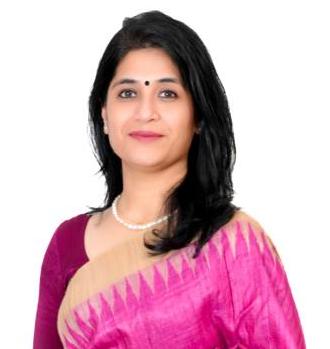 The growing global concern over plastic pollution is leading to decisive action. Ms. Apurva Rathod, Company Secretary and Chief Sustainability Officer, L&T Finance Ltd, urges, “The use of single-use plastic has resulted in an environmental crisis that is now impacting human health, biodiversity, and the overall well-being of our planet…It is not just an environmental challenge, it is also a social, economic, and public health issue. While policy changes and innovations in sustainable packaging are critical, real change will begin with accountability, adaptability, and collective commitment. ‘The time to act is now’ Whether it’s through reducing plastic use, supporting circular economy models, or driving behavioural change, every step counts.”
The growing global concern over plastic pollution is leading to decisive action. Ms. Apurva Rathod, Company Secretary and Chief Sustainability Officer, L&T Finance Ltd, urges, “The use of single-use plastic has resulted in an environmental crisis that is now impacting human health, biodiversity, and the overall well-being of our planet…It is not just an environmental challenge, it is also a social, economic, and public health issue. While policy changes and innovations in sustainable packaging are critical, real change will begin with accountability, adaptability, and collective commitment. ‘The time to act is now’ Whether it’s through reducing plastic use, supporting circular economy models, or driving behavioural change, every step counts.”
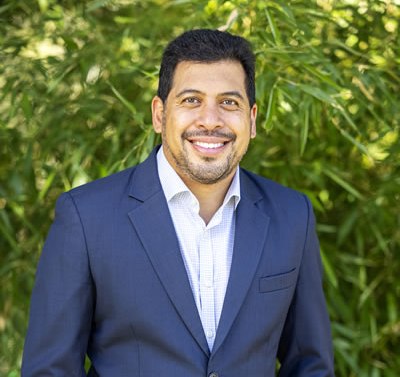 Dr. Vivek Tandon, Founder - revalyu Group, reinforces the shift in perspective: "Companies are increasingly recognising plastic as a valuable resource with immense untapped potential. India has emerged as a global leader, recycling over 95% of all PET bottles, driven by stringent EPR regulations and growing demand for sustainable materials. At the forefront is revalyu, pioneering a first-of-its-kind glycolysis-based chemical recycling technology that transforms post-consumer PET waste into high-quality rPET chips.
Dr. Vivek Tandon, Founder - revalyu Group, reinforces the shift in perspective: "Companies are increasingly recognising plastic as a valuable resource with immense untapped potential. India has emerged as a global leader, recycling over 95% of all PET bottles, driven by stringent EPR regulations and growing demand for sustainable materials. At the forefront is revalyu, pioneering a first-of-its-kind glycolysis-based chemical recycling technology that transforms post-consumer PET waste into high-quality rPET chips.
Used across textiles, packaging, and bottling, this low-energy, low-water, zero-liquid-discharge process supports circular economy goals. It also helps industries significantly reduce their environmental impact while ensuring compliance and long-term sustainability. Such innovations are turning plastic waste from an environmental challenge into a valuable and scalable resource."
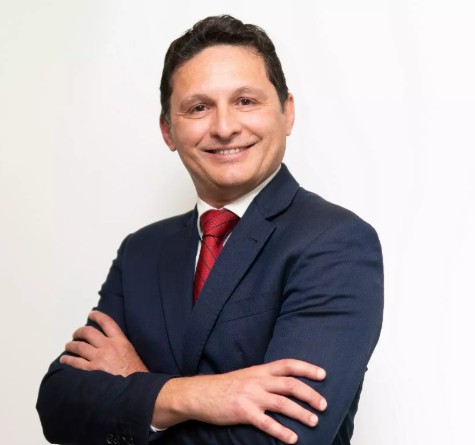 In the realm of packaging, Cassio Simões, Managing Director, Tetra Pak South Asia, highlights their commitment: "At Tetra Pak, our commitment to sustainability goes beyond recycling, it’s about rethinking the entire lifecycle of the package, reducing our environmental footprint, and driving systemic change. Through groundbreaking technologies like fiber-based barriers and plant-based polymers, we are accelerating the shift toward fully renewable and recyclable packaging. From supporting voluntary Extended Producer Responsibility initiatives to co-creating robust collection and recycling ecosystems with partners, recyclers, and communities, we are focused on delivering long-term, inclusive impact. As we work toward achieving net-zero greenhouse gas emissions across our value chain by 2050, we remain committed to protecting what’s good—for food, people and the planet.”
In the realm of packaging, Cassio Simões, Managing Director, Tetra Pak South Asia, highlights their commitment: "At Tetra Pak, our commitment to sustainability goes beyond recycling, it’s about rethinking the entire lifecycle of the package, reducing our environmental footprint, and driving systemic change. Through groundbreaking technologies like fiber-based barriers and plant-based polymers, we are accelerating the shift toward fully renewable and recyclable packaging. From supporting voluntary Extended Producer Responsibility initiatives to co-creating robust collection and recycling ecosystems with partners, recyclers, and communities, we are focused on delivering long-term, inclusive impact. As we work toward achieving net-zero greenhouse gas emissions across our value chain by 2050, we remain committed to protecting what’s good—for food, people and the planet.”
Mr. Gagandeep Sethi, Senior Vice President – Integrated Operations, Sustainability & Responsibility, Pernod Ricard India, shares their comprehensive approach to tackling plastic pollution: "At Pernod Ricard India, our commitment to sustainability is guided by one belief — that real progress lies at the intersection of people-powered innovation, planet-positive models, and purpose-led partnerships.”
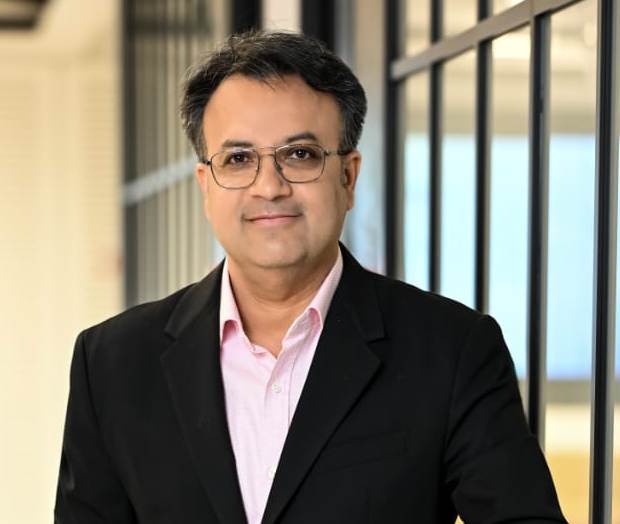 Sethi discusses how they are enabling entrepreneurs building the future of plastic recovery- across bioplastics, plastic-to-energy, and advanced recycling- through Advaya, their deep-tech circularity accelerator with IIT Kanpur, and the Social Impact Incubator with IIM Bangalore. These initiatives have already diverted over 4.6 lakh kilograms of plastic and agri-waste from landfills, reaffirming the role of enterprise in shaping scalable environmental action. Their Prakriti Incubation Launchpad in Northeast India strengthens this vision by supporting circular solutions rooted in indigenous knowledge — ensuring their approach remains locally anchored and community-powered. Pernod Ricard is also advancing circularity within their own operations. Their bulk 2-liter bottles of Blenders Pride and Royal Stag now incorporate 30% food-grade recycled PET, aligned with global and national food safety standards. They’ve also engineered lighter-weight caps to enhance performance and significantly reduce plastic use.
Sethi discusses how they are enabling entrepreneurs building the future of plastic recovery- across bioplastics, plastic-to-energy, and advanced recycling- through Advaya, their deep-tech circularity accelerator with IIT Kanpur, and the Social Impact Incubator with IIM Bangalore. These initiatives have already diverted over 4.6 lakh kilograms of plastic and agri-waste from landfills, reaffirming the role of enterprise in shaping scalable environmental action. Their Prakriti Incubation Launchpad in Northeast India strengthens this vision by supporting circular solutions rooted in indigenous knowledge — ensuring their approach remains locally anchored and community-powered. Pernod Ricard is also advancing circularity within their own operations. Their bulk 2-liter bottles of Blenders Pride and Royal Stag now incorporate 30% food-grade recycled PET, aligned with global and national food safety standards. They’ve also engineered lighter-weight caps to enhance performance and significantly reduce plastic use.
On similar lines, UST defines clear environmental metrics in its Supplier Assessment Framework to evaluate all critical vendors and conducts due diligence and periodic reassessment of 100% of critical suppliers for ESG criteria.
Enhancing ESG Reporting and Accountability
Transparency and accountability are crucial for building stakeholder trust and driving continuous improvement in sustainability efforts. Organizations are enhancing their ESG reporting through various mechanisms.
EY GDS enhances ESG reporting by providing independent assurance, controls testing, and alignment with global standards such as Revised ISAE 3000, CSRD, and ISSB. They are also an early adopter of TCFD with a completed readiness assessment. Their teams help build robust ESG reporting systems, improve data quality, and secure audit readiness. They also support the implementation of ESG technology platforms that streamline data collection and reporting. Internally, EY GDS publishes transparent sustainability metrics and continuously evolves its reporting practices to meet stakeholder expectations and regulatory requirements. Their climate action strategy is underpinned by a science-based target to achieve net-zero emissions with measurable reductions in carbon output.
SBM Offshore is strengthening ESG reporting and accountability by upgrading data management systems, reinforcing internal controls, and aligning disclosures with the European Sustainability Reporting Standards or ESRS. They believe that transparent reporting, backed by measurable performance indicators, builds stakeholder trust and ensures continuous improvement.
UST enhances ESG reporting and accountability by conducting materiality assessments to align disclosures with key stakeholder priorities. They publish an integrated sustainability report covering Scope 1–3 data, biodiversity, and supply-chain metrics, with third-party assurance, and are committed to SBTi and annual reporting through external rating platforms like CDP and Ecovadis. ESG KPIs are embedded into executive dashboards and board reviews to ensure ongoing oversight and improvement.
Mphasis, through its "Tech For Good" framework, leverages AI, cloud, and quantum technologies to deliver solutions that are not only scalable and sustainable but also enhance ESG reporting. They work with clients on GHG accounting, data center sustainability, green underwriting, and energy-efficient cloud migrations.
Leveraging Digital Innovation for Sustainability
Digital innovation, particularly in areas like AI, cloud computing, and data analytics, is proving to be a powerful enabler for businesses to achieve their sustainability goals.
UST partners with clients to drive digital and sustainable transformation, leveraging data and AI-driven insights to optimize energy efficiency, reduce carbon footprints, and advance net-zero goals. Their three-tiered services—Enable, Transform, Sustain—equip organizations to measure environmental impact and implement eco-friendly strategies across operations and supply chains. They design and execute solutions that decarbonize processes using AI and analytics. This includes deploying digital twins to model facility performance, implementing waste-reduction and resource/energy-optimization programs, leveraging smart building technologies, and automating workflows to reduce manual inefficiencies. Beyond compliance, UST helps clients embed ESG principles into their core business models.
Anuj Khurana of Anaptyss highlights the urgent need for the BFSI industry to approach tech integration journeys in a way that reduces environmental footprint and builds long-term resilience, especially concerning plastic-heavy, paper-dependent legacy systems or energy-intensive cloud and automation deployment. He emphasizes that organizations are adopting measures to embed sustainability within the fabric of digital transformation.
The Regenerative Future
The collective insights from these industry leaders paint a vivid picture of a future where sustainability is not an add-on but a core component of business strategy, deeply integrated into operations, employee engagement, and stakeholder relationships. The shift towards treating nature as an equal stakeholder is driving innovation, fostering collaborations, and leading to more transparent and accountable practices.
As Shilpa Deodhar beautifully articulates, "Imagine a world where every individual, organisation, and partnership is united by a shared purpose - to protect, preserve, and regenerate. A world where today’s choices shape a thriving, resilient tomorrow. This vision is not only possible—it’s within reach. With commitment, creativity, and collaboration, we can lead the way in building a future that is not just sustainable, but truly regenerative: for people, planet, and generations to come”.
This integrated approach, as reinforced by EY GDS, verifies that sustainability is not only a strategic priority but also a core component of long-term value creation. At SBM Offshore, "environmental stewardship is not a standalone goal—it is a shared responsibility and a strategic imperative that shapes every aspect of our growth”. Ultimately, as UST's purpose statement declares, it is about "Transforming lives" and "creating boundless impact for our clients, people, and communities they serve". This holistic commitment to sustainability, enabled by collaboration and digital innovation, is paving the way for a more harmonious and prosperous future for all.





 The understanding that integrating nature into business strategy is no longer merely philosophical but strategic is gaining widespread traction. Businesses that embed natural capital into their strategies are better positioned for resilience, regulatory compliance, and investor confidence, ultimately creating long-term value and maintaining their license to operate. The World Economic Forum's 2025 Global Risks Report underscores this urgency, identifying biodiversity loss and ecosystem collapse among the top global risks by impact.
The understanding that integrating nature into business strategy is no longer merely philosophical but strategic is gaining widespread traction. Businesses that embed natural capital into their strategies are better positioned for resilience, regulatory compliance, and investor confidence, ultimately creating long-term value and maintaining their license to operate. The World Economic Forum's 2025 Global Risks Report underscores this urgency, identifying biodiversity loss and ecosystem collapse among the top global risks by impact. Similarly, Sunil Balakrishnan, Chief Values Officer at UST, stresses that "long-term business success is inseparable from environmental responsibility," and that "caring for the planet is not only a moral imperative but also a business necessity".
Similarly, Sunil Balakrishnan, Chief Values Officer at UST, stresses that "long-term business success is inseparable from environmental responsibility," and that "caring for the planet is not only a moral imperative but also a business necessity". HGS, through Shilpa Sinha Harsh, Executive Vice President, Global Corporate Communications, CSR, DEI, and ESG, shares a compelling example from Rajasthan where water conservation efforts directly led to improved crop cycles, reduced migration, and enhanced livelihoods, demonstrating that "When nature thrives, communities thrive, and businesses operating in those communities benefit too". This recognition fosters a shift from extraction to regeneration, a mindset crucial for future-ready and responsible growth.
HGS, through Shilpa Sinha Harsh, Executive Vice President, Global Corporate Communications, CSR, DEI, and ESG, shares a compelling example from Rajasthan where water conservation efforts directly led to improved crop cycles, reduced migration, and enhanced livelihoods, demonstrating that "When nature thrives, communities thrive, and businesses operating in those communities benefit too". This recognition fosters a shift from extraction to regeneration, a mindset crucial for future-ready and responsible growth. Plannex Recycling, according to Yuvraj Bhardwaj, focuses on creating meaningful, measurable, and rewarding ways for employees to contribute. Their threefold strategy includes integrating sustainability into Key Responsibility Areas – such as green procurement targets for the procurement team and emission reduction ratings for plant managers. They also utilize gamified participation through internal campaigns like "The Green League" where departments compete on waste reduction, energy conservation, and creative reuse, with winners receiving recognition and performance-linked bonuses.
Plannex Recycling, according to Yuvraj Bhardwaj, focuses on creating meaningful, measurable, and rewarding ways for employees to contribute. Their threefold strategy includes integrating sustainability into Key Responsibility Areas – such as green procurement targets for the procurement team and emission reduction ratings for plant managers. They also utilize gamified participation through internal campaigns like "The Green League" where departments compete on waste reduction, energy conservation, and creative reuse, with winners receiving recognition and performance-linked bonuses. Shilpa Deodhar, Head of Corporate Social Responsibility, Bosch Global Software Technologies, highlights the role of volunteers in amplifying environmental impact through awareness campaigns, clean-up drives, and afforestation efforts. Bosch also champions everyday sustainability among employees, recognizing that "Small, consistent actions, like cycling or using public transport, avoiding single-use plastics, reducing waste, and adopting mindful consumption—can spark broader cultural shifts".
Shilpa Deodhar, Head of Corporate Social Responsibility, Bosch Global Software Technologies, highlights the role of volunteers in amplifying environmental impact through awareness campaigns, clean-up drives, and afforestation efforts. Bosch also champions everyday sustainability among employees, recognizing that "Small, consistent actions, like cycling or using public transport, avoiding single-use plastics, reducing waste, and adopting mindful consumption—can spark broader cultural shifts". Reinforcing the personal aspect of sustainability, Ankit Mathur, Co-founder & CEO, Greenway Grameen, aptly states, "Sustainability isn’t something we can outsource, it starts with the individual. It’s not just about switching to eco-friendly products; it’s about shifting how we think, buy, and live. Ask yourself: Do I really need this, or can I make what I have last longer? It’s these small, mindful choices that shape a culture of sustainability. Real impact comes from everyday action, whether it’s choosing energy-efficient solutions, reducing waste, or embracing renewable alternatives in our homes. Change doesn’t start big, it starts with better decisions, made consistently."
Reinforcing the personal aspect of sustainability, Ankit Mathur, Co-founder & CEO, Greenway Grameen, aptly states, "Sustainability isn’t something we can outsource, it starts with the individual. It’s not just about switching to eco-friendly products; it’s about shifting how we think, buy, and live. Ask yourself: Do I really need this, or can I make what I have last longer? It’s these small, mindful choices that shape a culture of sustainability. Real impact comes from everyday action, whether it’s choosing energy-efficient solutions, reducing waste, or embracing renewable alternatives in our homes. Change doesn’t start big, it starts with better decisions, made consistently." Anuj Khurana, Co-Founder and CEO, Anaptyss, highlights the BFSI industry's need for sustainable operations, emphasizing a critical rethink of everyday operations to reduce environmental footprint, including concerns around plastic-heavy and paper-dependent legacy systems or energy-intensive cloud and automation deployment. He also notes the rise of green job profiles within the sector, with an expected addition of close to 0.7 million green jobs over the next five years, fast-tracking responsible innovation.
Anuj Khurana, Co-Founder and CEO, Anaptyss, highlights the BFSI industry's need for sustainable operations, emphasizing a critical rethink of everyday operations to reduce environmental footprint, including concerns around plastic-heavy and paper-dependent legacy systems or energy-intensive cloud and automation deployment. He also notes the rise of green job profiles within the sector, with an expected addition of close to 0.7 million green jobs over the next five years, fast-tracking responsible innovation. The story is equally troubling in the world of fast fashion. Of an estimated 100 billion garments produced each year, 90% are discarded within 12 months, and 20% are never even worn. In consumer electronics, frequent upgrades push people to discard still-functional devices, contributing to a booming e-waste crisis. We are aggressively extracting natural resources to satisfy insatiable demand—yet generating waste far beyond our ecological capacity. Unless we rethink the way we consume and produce, we risk overwhelming our planet's ability to recover."
The story is equally troubling in the world of fast fashion. Of an estimated 100 billion garments produced each year, 90% are discarded within 12 months, and 20% are never even worn. In consumer electronics, frequent upgrades push people to discard still-functional devices, contributing to a booming e-waste crisis. We are aggressively extracting natural resources to satisfy insatiable demand—yet generating waste far beyond our ecological capacity. Unless we rethink the way we consume and produce, we risk overwhelming our planet's ability to recover." Deepa Nagraj, Head of ESG and CSR, Mphasis highlights their "Tech For Good" framework, which leverages AI, cloud, and quantum technologies to deliver scalable and sustainable solutions that align with UN Sustainable Development Goals. Their internal practices also contribute, with nearly 50% of energy needs met through renewable sources and 100% wastewater recycling, alongside efforts to reduce greenhouse gas emissions. They also partner with United Way of Bengaluru on initiatives that support SDGs, such as lake rejuvenation, rainwater harvesting, afforestation, and mangrove restoration, benefiting thousands of lives through climate-resilient community development.
Deepa Nagraj, Head of ESG and CSR, Mphasis highlights their "Tech For Good" framework, which leverages AI, cloud, and quantum technologies to deliver scalable and sustainable solutions that align with UN Sustainable Development Goals. Their internal practices also contribute, with nearly 50% of energy needs met through renewable sources and 100% wastewater recycling, alongside efforts to reduce greenhouse gas emissions. They also partner with United Way of Bengaluru on initiatives that support SDGs, such as lake rejuvenation, rainwater harvesting, afforestation, and mangrove restoration, benefiting thousands of lives through climate-resilient community development. Sumit Barat, Chief Sustainability Officer at BluPine Energy, articulates the integrated approach to climate action and community development: “The world’s challenges aren’t confined to sovereign borders, and India’s decarbonization journey shall be a major tailwind in the global fight against climate change. In FY2024, we avoided over 670,000 tonnes of CO2e emissions and generated more than 740,000 MWh of renewable energy—advancing our Net Zero 2040 and Water Neutrality 2027 goals…Sustainability for us isn’t an initiative—it’s the lens through which we see growth, resilience, and the kind of legacy we want to leave behind."
Sumit Barat, Chief Sustainability Officer at BluPine Energy, articulates the integrated approach to climate action and community development: “The world’s challenges aren’t confined to sovereign borders, and India’s decarbonization journey shall be a major tailwind in the global fight against climate change. In FY2024, we avoided over 670,000 tonnes of CO2e emissions and generated more than 740,000 MWh of renewable energy—advancing our Net Zero 2040 and Water Neutrality 2027 goals…Sustainability for us isn’t an initiative—it’s the lens through which we see growth, resilience, and the kind of legacy we want to leave behind." Adding to the collective efforts, Hyundai Motor India Foundation shares their grassroots impact: Puneet Anand, AVP & Vertical Head - Corporate Affairs, Corporate Communication & Social, Hyundai Motor India Limited, shares, "Hyundai Motor India Foundation is dedicated to driving impact where it matters most—at the grassroots across Bharat. In alignment with our aim to achieve carbon neutrality by 2045, we continue to strengthen our initiatives that support clean mobility, afforestation, ocean conservation, and innovative waste management practices. Through our ongoing urban sustainability efforts in Gurugram, we are actively diverting waste from landfills and significantly reducing carbon emissions. EcoGram by Hyundai currently recycles over 11,15,370 kg of waste and reduces over 1,44,000 kg of CO2 emissions."
Adding to the collective efforts, Hyundai Motor India Foundation shares their grassroots impact: Puneet Anand, AVP & Vertical Head - Corporate Affairs, Corporate Communication & Social, Hyundai Motor India Limited, shares, "Hyundai Motor India Foundation is dedicated to driving impact where it matters most—at the grassroots across Bharat. In alignment with our aim to achieve carbon neutrality by 2045, we continue to strengthen our initiatives that support clean mobility, afforestation, ocean conservation, and innovative waste management practices. Through our ongoing urban sustainability efforts in Gurugram, we are actively diverting waste from landfills and significantly reducing carbon emissions. EcoGram by Hyundai currently recycles over 11,15,370 kg of waste and reduces over 1,44,000 kg of CO2 emissions." The growing global concern over plastic pollution is leading to decisive action. Ms. Apurva Rathod, Company Secretary and Chief Sustainability Officer, L&T Finance Ltd, urges, “The use of single-use plastic has resulted in an environmental crisis that is now impacting human health, biodiversity, and the overall well-being of our planet…It is not just an environmental challenge, it is also a social, economic, and public health issue. While policy changes and innovations in sustainable packaging are critical, real change will begin with accountability, adaptability, and collective commitment. ‘The time to act is now’ Whether it’s through reducing plastic use, supporting circular economy models, or driving behavioural change, every step counts.”
The growing global concern over plastic pollution is leading to decisive action. Ms. Apurva Rathod, Company Secretary and Chief Sustainability Officer, L&T Finance Ltd, urges, “The use of single-use plastic has resulted in an environmental crisis that is now impacting human health, biodiversity, and the overall well-being of our planet…It is not just an environmental challenge, it is also a social, economic, and public health issue. While policy changes and innovations in sustainable packaging are critical, real change will begin with accountability, adaptability, and collective commitment. ‘The time to act is now’ Whether it’s through reducing plastic use, supporting circular economy models, or driving behavioural change, every step counts.” Dr. Vivek Tandon, Founder - revalyu Group, reinforces the shift in perspective: "Companies are increasingly recognising plastic as a valuable resource with immense untapped potential. India has emerged as a global leader, recycling over 95% of all PET bottles, driven by stringent EPR regulations and growing demand for sustainable materials. At the forefront is revalyu, pioneering a first-of-its-kind glycolysis-based chemical recycling technology that transforms post-consumer PET waste into high-quality rPET chips.
Dr. Vivek Tandon, Founder - revalyu Group, reinforces the shift in perspective: "Companies are increasingly recognising plastic as a valuable resource with immense untapped potential. India has emerged as a global leader, recycling over 95% of all PET bottles, driven by stringent EPR regulations and growing demand for sustainable materials. At the forefront is revalyu, pioneering a first-of-its-kind glycolysis-based chemical recycling technology that transforms post-consumer PET waste into high-quality rPET chips. In the realm of packaging, Cassio Simões, Managing Director, Tetra Pak South Asia, highlights their commitment: "At Tetra Pak, our commitment to sustainability goes beyond recycling, it’s about rethinking the entire lifecycle of the package, reducing our environmental footprint, and driving systemic change. Through groundbreaking technologies like fiber-based barriers and plant-based polymers, we are accelerating the shift toward fully renewable and recyclable packaging. From supporting voluntary Extended Producer Responsibility initiatives to co-creating robust collection and recycling ecosystems with partners, recyclers, and communities, we are focused on delivering long-term, inclusive impact. As we work toward achieving net-zero greenhouse gas emissions across our value chain by 2050, we remain committed to protecting what’s good—for food, people and the planet.”
In the realm of packaging, Cassio Simões, Managing Director, Tetra Pak South Asia, highlights their commitment: "At Tetra Pak, our commitment to sustainability goes beyond recycling, it’s about rethinking the entire lifecycle of the package, reducing our environmental footprint, and driving systemic change. Through groundbreaking technologies like fiber-based barriers and plant-based polymers, we are accelerating the shift toward fully renewable and recyclable packaging. From supporting voluntary Extended Producer Responsibility initiatives to co-creating robust collection and recycling ecosystems with partners, recyclers, and communities, we are focused on delivering long-term, inclusive impact. As we work toward achieving net-zero greenhouse gas emissions across our value chain by 2050, we remain committed to protecting what’s good—for food, people and the planet.” Sethi discusses how they are enabling entrepreneurs building the future of plastic recovery- across bioplastics, plastic-to-energy, and advanced recycling- through Advaya, their deep-tech circularity accelerator with IIT Kanpur, and the Social Impact Incubator with IIM Bangalore. These initiatives have already diverted over 4.6 lakh kilograms of plastic and agri-waste from landfills, reaffirming the role of enterprise in shaping scalable environmental action. Their Prakriti Incubation Launchpad in Northeast India strengthens this vision by supporting circular solutions rooted in indigenous knowledge — ensuring their approach remains locally anchored and community-powered. Pernod Ricard is also advancing circularity within their own operations. Their bulk 2-liter bottles of Blenders Pride and Royal Stag now incorporate 30% food-grade recycled PET, aligned with global and national food safety standards. They’ve also engineered lighter-weight caps to enhance performance and significantly reduce plastic use.
Sethi discusses how they are enabling entrepreneurs building the future of plastic recovery- across bioplastics, plastic-to-energy, and advanced recycling- through Advaya, their deep-tech circularity accelerator with IIT Kanpur, and the Social Impact Incubator with IIM Bangalore. These initiatives have already diverted over 4.6 lakh kilograms of plastic and agri-waste from landfills, reaffirming the role of enterprise in shaping scalable environmental action. Their Prakriti Incubation Launchpad in Northeast India strengthens this vision by supporting circular solutions rooted in indigenous knowledge — ensuring their approach remains locally anchored and community-powered. Pernod Ricard is also advancing circularity within their own operations. Their bulk 2-liter bottles of Blenders Pride and Royal Stag now incorporate 30% food-grade recycled PET, aligned with global and national food safety standards. They’ve also engineered lighter-weight caps to enhance performance and significantly reduce plastic use.






.jpg)



